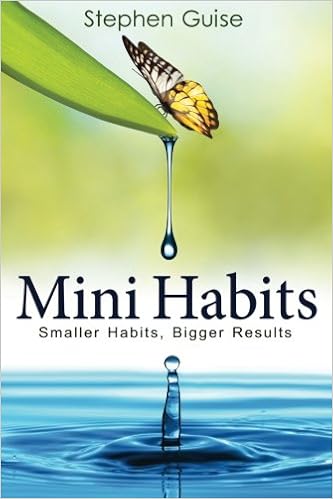Ok, so it’s time to come clean and admit what I am actually doing. Up until now I have been reluctant to share this because, well, it sounds so ridiculous! I have a mortgage, a wife and one-year-old daughter – and I had a good job… until I quit it. On top of that, I don’t have another job or a concrete plan – just a few ideas and some savings to keep us going for a little while.
I could waste time here explaining why I left my job, but I am not going to. There were good reasons I can assure you, but frankly, no one wants to read about my personal problems and the issues I had with my job. The sad fact is, most of us, for whatever reasons, want to leave our jobs so that we can pursue something more fulfilling. I was lucky enough to have the opportunity, so I took it… what’s the worst that can happen?
I have been toying with an idea for a while – a Blog/ YouTube channel where I document myself learning new skills and exploring new things it order to help me find my passion. However, I never managed to get any momentum. Of course, I gave myself all the usually excuses: not enough time, money, energy etc.
The truth was, that I was never fully committed . I tried to play it safe. To not take any risks. I was trying to juggle a career, whilst simultaneously trying to find a way out of it. I felt in constant conflict and it was massively draining. I felt that nothing was going to change and that I was stuck.
So I took the plunge and handed in my notice. All I can remember is such a feeling of immense relief , like all of a sudden felt a dark cloud of despair had be lifted. I felt empowered and that It was up to me to make my own choices, right or wrong , and to live with the consequences. As of the 17th January 2021 I officially left my job.
My Aim For 2021
So what do I hope to achieve? Here is a rough Idea I what I want out of this experiment .
- To find ‘My Passion’ – or at least explore some of my interests.
- To get healthy – physically and mentally. (Both of these took a massive hit last year).
- Spend more quality time with my wife and daughter.
- Give back to community and others.
- To learn a bunch of new things. – some fun, some for employment.
- Reassess my values.
- Read more.
- Share my journey
This list isn’t as specific as I’d like. I know it would be better to set specific goals and make a plan. However, being somewhat of a perfectionist planning can very easily turn into procrastination. This idea of “having a good plan” was one of the major things that was held me back in the first place. After a while I realised that I just needed to take a risk and let the things develop on their own – sometimes you got to just jump in.
Exploring Through Blogging.
For now, the rough plan is do a bit of initial exploration and see if anything sticks. This blog is one form of exploration.
It seems like everyone out there has a blog, so I thought I should probably have one too. As I wrote last week, just copying others may not actually get you where you want to go- but I have to start somewhere. Besides, I would love to have some documentation of this year to look back on.
I plan to upload a post every week covering what I have explored and found out that week.
My hope is that in time, this blog will not only get better, but that its content can help other people. At the very least, it will act as some tangible output of my journey.
My fear is that this may end up a cautionary tale for people not to take a big risk during a global pandemic – like quitting your job!
However, I should say that my previous fear was that nothing was ever going to change. That I would be too afraid to take a risk. That I would have to have the perfect plan or wait for the perfect time to make a change. But that is no longer the case. I guess things can change if you have the courage to act.
Whatever happens, things are different now. I have taken the first step. Wish me luck!



